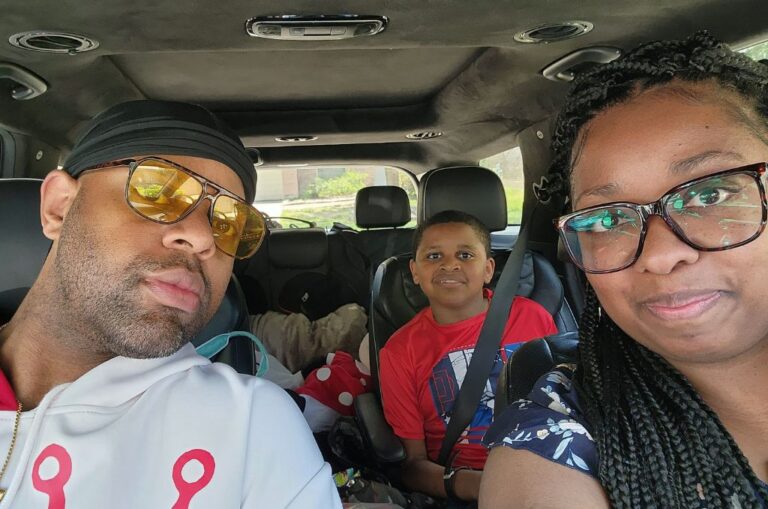Yoga is a practice that is often associated with physical and mental health benefits. However, yoga can also have positive effects on your financial health. Practicing yoga can help you cultivate a mindset of abundance, gratitude, and mindfulness that can lead to better financial decision-making. This blog will explore how you can improve your financial health by incorporating yoga into your daily routine.
We’ll cover how yoga can help you reduce financial stress, increase financial literacy, and develop better money habits. Whether you are just starting your financial journey or looking to improve your current financial situation, practicing yoga can be a powerful tool to help you achieve your goals.
Do you ever feel like your finances are controlling you? Does the thought of bills pile up make your stomach churn? Are you tired of feeling overwhelmed by your finances? What if there was a way to manage stress, improve focus, and make better financial decisions? Yoga can be that key!
Yoga For Financial Freedom
Yoga isn’t just about physical postures. It’s a practice that cultivates a calm mind and sharp focus – essential tools for financial well-being. Yoga postures that improve flexibility can also enhance your ability to adapt to changing financial situations. Deep breathing exercises help manage stress, allowing you to make clear-headed financial choices.
Mindfulness: Your Budget Buddy
Mindfulness practices in yoga help you become more aware of your spending habits and triggers. By focusing on the present moment, you can avoid impulse purchases and make conscious choices aligned with your long-term financial goals. Imagine creating a budget with a clear mind, setting realistic goals, and feeling empowered to achieve them.
Anxiety and The Financial Connection
To ensure we’re all on the same page, let’s first define what anxiety is and what it does. The American Psychological Association (APA) defines it as follows:
“Anxiety is an emotion characterized by feelings of tension, worried thoughts, and physical changes like increased blood pressure.”
People with anxiety disorders usually have recurring intrusive thoughts or concerns.
They may avoid certain situations out of worry. They may also have physical symptoms such as sweating, trembling, dizziness, or a rapid heartbeat.”
In reading the APA definition, look carefully at the connection between anxiety and physical symptoms: increased blood pressure, sweating, trembling, dizziness, or a rapid heartbeat. If you are experiencing any of these, anxiety may be the problem. And as it turns out, there’s a close connection between anxiety and your finances.
According to the Financial Industry Regulatory Agency (FINRA), at least half of Americans experience stress and anxiety in connection with their finances. FINRA found that to be the case even before the COVID global pandemic set in. Research confirms that “financial stress and anxiety are highly linked to low levels of financial literacy, problematic financial behaviors, and decreased financial security.” It’s not difficult to connect the dots between anxiety and your finances.
Extreme financial worries are the natural outcome of too much outgo and insufficient income, often in combination with uncertainty over solutions and a lack of understanding. That combination can easily lead to mental distraction, physical distress, constant worry, and even avoiding dealing with finances in a timely manner.
The stress and physical discomfort can be avoided by creating better focus. That means developing a strategy to cut through the mental fog that finances cause. That will help you zero in on getting better control over your money issues. That’s where yoga can help.
What Is Yoga?
Many Americans, primarily familiar with the TV version of yoga, may view it as some sort of exotic practice. But in reality, it has enough practical applications to help improve your daily life. And, yes, even your finances.
Dr. Ishwar V. Basavaraddi of the Government of India, Ministry of External Affairs, defines Yoga as “…essentially a spiritual discipline based on an extremely subtle science that focuses on bringing harmony between mind and body. It is an art and science of healthy living.”
In simple terms, yoga can help you to improve your ability to focus on living your life and dealing with whatever issues you may be confronting. This may be especially applicable when it comes to finances.
Though we may think of finances as “the money thing,” it’s much more. That’s why the whole topic can be so stressful. It’s not an exaggeration to say that money underlies almost everything we do. We’re paid in money, we pay others in money, and we measure nearly everything in terms of money. In our minds, money becomes more of a master than a servant. That’s overwhelming.
Yoga can help you to overcome that wall of worry. It does this by allowing you to raise your level of awareness about both yourself and the world around you. That includes money. As your awareness increases, so does your ability to focus. That’s especially important when it comes to finances. With money being seemingly all-encompassing, it’s easy to get distracted.
By regularly practicing yoga, you can develop the discipline to get your mind focused on the task at hand. That alone can provide you with the mental clarity needed to deal with an issue as complicated as finances.
5 Ways Yoga Improves Your Finances
(1) Reduces Stress and Anxiety
One of the main benefits of yoga is that it helps reduce stress and anxiety levels. When stressed, you may make poor financial decisions or overspend to cope with your emotions. By practicing yoga, you can learn to manage stress and anxiety healthily, ultimately improving your economic well-being.
(2) Improves Focus and Concentration
Yoga can help improve your focus and concentration, leading to better financial decision-making. By practicing yoga regularly, you can train your mind to stay focused on the present moment and avoid distractions that could impact your finances negatively.
(3) Increases Self-Awareness
Yoga can help you become more self-aware, which can be beneficial for your finances. You may become more conscious of your spending habits and be able to identify areas where you can cut back or save money.
(4) Boosts Physical and Mental Well-Being
Practicing yoga regularly can improve your physical and psychological well-being, which can positively impact your finances. By maintaining good health, you can avoid costly medical bills and be more productive in your work, leading to better financial outcomes.
(5) Encourages Mindfulness
Mindfulness is the practice of being present at the moment and paying attention to your thoughts and feelings without judgment. Practicing yoga can promote mindfulness, which can help you make better financial decisions by focusing on what’s important and avoiding impulsive purchases or investments.
Feeling financially lost at sea? Our supportive Facebook group is your life raft (minus the leaky bottom).
Here’s why you NEED to join:-
1. Connect with your financial spirit animals: People who understand the struggle of accidentally buying a premium on EVERYTHING.
2. Laugh (and maybe cry) together: Share epic financial failures and celebrate tiny victories. Because adulting is hard, and sometimes you just need a good shoulder to cry on (or high five!).
3. Learn from each other’s (slightly questionable) money moves: We’re not financial advisors, but hey, misery loves company, especially when it comes to learning from other people’s mistakes!
P.S. We won’t judge your questionable spending habits (unless they involve a pet tiger. Seriously, don’t do that).
Yoga and Mindfulness
Yoga joins your body, mind, and spirit to behave as one. That’s the exact recipe needed to deal with the stresses of life. In the TV version of yoga, the practitioner sits on a mat and seems to hum. The humming isn’t just for theatrics, either. Mechanically, she says “so” when breathing in and “hum” when exhaling. In other words, humming is the process of controlling your breathing.
Proper intentional breathing is critical to any type of activity designed to help you relax and develop better focus. Breathing is, of course, an essential function of living at its most basic level. And that allows the mind, body, and spirit to come together.
You’ll not only start with breathing, but you’ll continue it throughout the process. It’s also essential to remain in the seated position. From that relaxed state, you can concentrate on setting your intention. That can be your best friend when tackling any major project, especially involving anything as stressful as money.
The idea is to clear your mind, so you can concentrate on a single task, even if it’s complicated. Yoga can create mindfulness that makes doing any difficult task easier. That’s because it helps you be completely present without being distracted by negative feelings like stress and anxiety.
Will Mindfulness Help My Anxiety?
Maybe it can take everything you have to motivate yourself just to sit down and pay your bills. Or perhaps you need to make a difficult financial decision requiring new information, like opening an IRA or an investment account. Whatever the challenge, it will be better handled with a clear, relaxed mind.
We all have to deal with finances, one way or the other. But the better way to do it is with a clear head. Once achieved, you’ll be better able to deal with your challenge. Most of us have limited financial resources, which is the source of financial anxiety.
For example, that can put you in a position to choose between paying the electric bill or your life insurance premium. In a state of panic, you may choose to do neither. And while that will postpone – not eliminate – the problem for the moment, it will bring complications later, like late payment fees on both. But by embracing the mindfulness that yoga provides, you may find it easier to decide on which bill to pay. That may simply come down to delaying paying the bill, which will produce the fewest negative consequences.
You can use yoga to help you deal with any sticky financial decision. It won’t make all your financial troubles disappear, but it will help you prioritize the most critical first. And that alone can minimize future problems that will only increase your anxiety.
Eventually, you may come to a point where you’ll become more comfortable dealing with financial issues. And once you do, there’s an excellent chance your finances will begin to improve!
Financial well-being, like physical health, requires consistent care. Take control of your finances with daily knowledge and actionable steps by Subscribing to our newsletter
Here’s what you’ll get:-
- Weekly financial planning advice: Learn how to budget, set goals, and make smart investment choices.
- Expert insights: Gain valuable knowledge from financial professionals on various financial topics.
- Exclusive downloadable resources: Access helpful tools like budgeting templates and debt repayment trackers.
- Inspirational stories: Read about others who have achieved financial success and get motivated for your own journey.
International Yoga Day Activities
If you’ve never practiced yoga in the past, this may be the perfect time to get started. The United Nations has declared June 21 as the International Day of Yoga.
Take advantage of that day, or even any day after that, to begin practicing yoga in your own life. Yoga is the best ways to deal with that added stress and the ongoing anxiety caused by financial worries.
Conclusion
In a world where financial stress is becoming increasingly common, practicing yoga can be a powerful tool to improve your financial health. By cultivating a mindset of abundance and mindfulness, you can make better financial decisions, reduce stress, and develop habits that will lead to long-term financial stability.
Whether you’re a beginner or an experienced yogi, incorporating yoga into your daily routine can help you achieve your financial goals and transform your life. So if you’re ready to take control of your finances and improve your well-being, start practicing yoga today and experience its many benefits.









